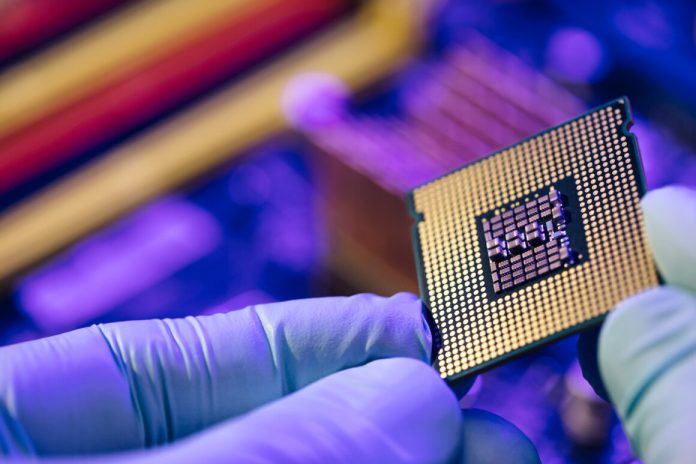Recently, Chinese semiconductor companies frequently post job openings on Korean job boards.
“It is not uncommon for many Chinese companies that have entered semiconductor zones in Korea such as Pangyo to offer high salaries and perks to Korean semiconductor engineers,” said Kim Hyung-jun, head of the Next Generation Intelligent Semiconductor Foundation in Korea.
Chinese semiconductor companies’ aggressive search for Korean talent has a lot to do with the Chinese government’s semiconductor drive. In 2015, Chinese authorities released the China Manufacturing 2025 Policy, saying that the country would elevate its semiconductor self-sufficiency rate to 70% by 2025.
A key to attaining this goal is human resources development. The China Semiconductor Industry Association has vowed to increase China’s semiconductor workforce to 760,000 by the end of this year. That’s a whopping 40.7% increase from 540,000 in 2020.
An integral part of this is the recruitment of elite semiconductor talent from Korea. Korea has the best semiconductor manufacturing technology in the world in Samsung Electronics and SK Hynix. Workers trained at these companies are scattered across Korea.
China’s strategy is to accelerate the acquisition of key technologies by attracting Korean engineers who will juice up China’s own semiconductor R&D ecosystems.
However, Chinese chipmakers’ love of Korean human resources is nothing new. Chinese memory producers already have a significant number of Korean semiconductor engineers involved in technology development.
In 2019, Chinese memory maker Fujian Jinhua, which had been hit hard by US economic retaliations, posted a job listing looking for engineers with more than a decade of work for Samsung Electronics and SK Hynix, but finally pulled it down due to controversy.
The problem is that China’s head hunt for semiconductor talent is likely to go beyond chips and spread throughout the semiconductor supply chain, including materials, parts, and equipment.
In fact, China is facing an urgent internal need to hasten the internalisation of its semiconductor ecosystem due to pressure from the US-China conflict. Through the Chips Act, the US has restricted exports of semiconductor production equipment needed to produce DRAM below 18 nm, NAND flashes above 128 gigabytes, and system semiconductors below 14 nm to China. To solve this problem, China has no choice but to speed up the localisation of materials, parts, and equipment and the recruitment of Korean engineers with excellent skills.
Concerns are being raised that the Korean government is being relatively complacent in its response to China’s Korean talent absorption. Some experts say that Korea’s semiconductor human resources protection system is even more lax than Taiwan’s.
In fact, Taiwan’s Ministry of Labor tightened related laws in 2021 to block Chinese semiconductor companies from attempting to hire Taiwanese semiconductor engineers through Taiwanese job sites.
If a Chinese company is found to have posted a career opportunity ad on a Taiwanese job site, it will face a fine between NTD 100,000 and NTD 500,000 (US$3,251 to US$16,254), and job brokering can carry a fine of up to NTD 5 million (US$162,538).
In 2022, a law was also established to punish those who commit the crime of economic espionage to protect Taiwan’s core technologies. Using or leaking semiconductor core technologies and trade secrets is considered an act of espionage, punishable by five to 12 years in prison and a fine of up to 4.2 billion won (US$3.3 million).
In Korea, the Act on the Prevention and Protection of Leakages of Industrial Technology applies to those who commit the crime of leaking Korea’s national core technologies. It is punishable by up to three years in prison and a fine of up to 1.5 billion won (US$1.2 million).
However, the punishments are not always severe and, sometimes, they are too light. According to the Korean Supreme Court’s Judicial Yearbook published in 2022, 87.8 % of the 33 first criminal trials under the Industrial Technology Protection Act in 2021 resulted in acquittal or probation. Only two of the 33 cases resulted in property sentences or imprisonment. – Business Korea






















